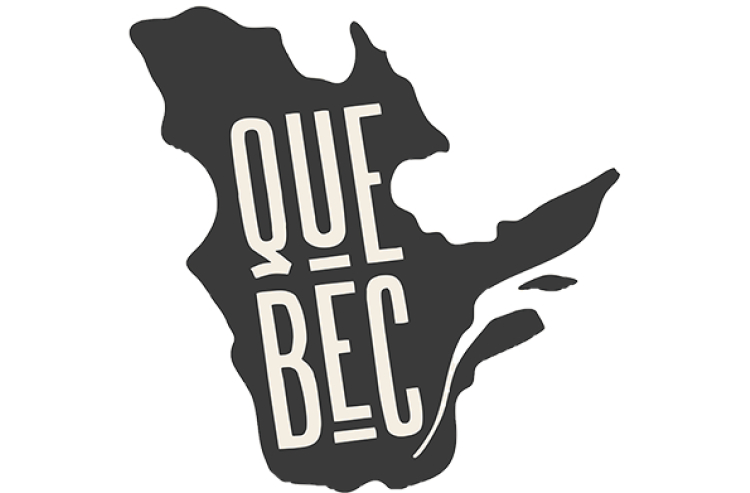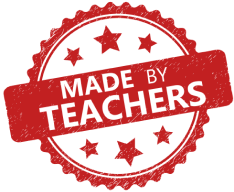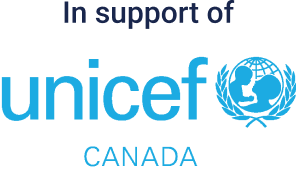Quebec Secondary III (Grade 9)

CLICK HERE FOR CURRICULUM CONNECTIONS, LESSONS AND SUPPORT RESOURCES.
Made by a Secondary III teacher in Quebec.
Kids Boost Immunity (KBI) provides educational content (lessons and support materials) developed by teachers and where needed, health experts, that is directly linked to curriculum and is available completely for free. Each lesson is paired with an online quiz that students can take on a laptop, tablet, or phone. Every time a student scores 80% or higher on a quiz, we donate life-saving vaccines to UNICEF Canada. To learn more about KBI, click here.
Click on the overarching curriculum themes below to see the curriculum outcomes that match KBI educational content. The full Secondary III Quebec Curriculum Connections document is here.
- Physical Education and Health
-
Curricular outcomes:
Physical Education and Health - Curriculum Competency
- Adopts a healthy, active lifestyle
- Planning: Develop a plan to maintain or change two personal lifestyle habits by summarizing facts about current habits, identifying personal preferences, setting realistic objectives, and using various resources.
- Implementation: Apply the strategy to improve or maintain the selected habits, utilizing necessary resources, persevering in the effort, and tracking changes.
- Evaluation: Assess the effectiveness of the plan by measuring fitness levels, judging whether goals were met, analyzing successes and challenges, reconsidering strategies, acknowledging accomplishments, and making decisions based on the evaluation.
Applicable KBI lessons:
1. Critical Thinking & Evaluating Information
- Literacy builder worksheet/answer guide
- Lesson worksheet/answers
- Video worksheet/answers
- Inquiry activities/answer guides
- Numeracy activity/answers
2. Navigating the World of Online (Mis)Information
- Inquiry activities/answer guides
- Adopts a healthy, active lifestyle
- Science
-
Curricular outcomes:
Science and Technology – Curriculum Competency
- Seeks answers or solutions to scientific or technological problems
- Problem Definition: Understands and reframes the problem using scientific concepts, proposing possible solutions.
- Action Plan: Explores options, selects a solution, identifies resources, and plans implementation steps.
- Analysis: Identifies patterns, evaluates the solution, connects results to concepts, and suggests improvements.
- Execution: Follows the plan, using appropriate techniques, testing if needed, and gathering data, while adjusting as necessary.
Science and Technology - General Concepts
- Matter cycles within biotic and abiotic components of ecosystems
- human impacts on sources and sinks
- e.g., climate change, deforestation, agriculture, etc.
- bioaccumulation and biomagnification within biotic and abiotic components of ecosystems
- Sustainability of systems
- a systems approach to sustainability sees all matter and energy as interconnected and existing in dynamic equilibrium
- e.g., carbon as a key factor in climate change, greenhouse effect, water cycle, etc.
Applicable KBI lessons:
1. Environment & Climate Change
- Literacy builder worksheet/answer guide
- Lesson worksheet/answers
- Video worksheet/answers
- Inquiry activities/answer guides
- Numeracy activity/answers
2. Critical Thinking & Evaluating Information
- Literacy builder worksheet/answer guide
- Lesson worksheet/answers
- Video worksheet/answers
- Numeracy activity/answers
- Seeks answers or solutions to scientific or technological problems
- Social Studies
-
Curriculum outcomes:
Social Sciences - Curriculum Competency
- Characterizes a period in the history of Québec and Canada
- Establishes Historical Facts: Retraces events, considers societal aspects, and identifies key historical figures and their actions.
- Chronology: Establishes the sequence of events using chronological reference points.
- Geographical Features: Determines territorial boundaries, identifies natural features, and finds evidence of settlement.
- Interprets a social phenomenon
- Defines the Object of Interpretation: Identifies context, considers societal aspects, and formulates tentative explanations.
- Analyzes Social Phenomenon: Establishes changes and continuities, identifying causes and consequences.
- Ensures Validity: Distinguishes intentions, values, and beliefs, while considering alternative interpretations.
Social Sciences - General Concept
- The continuing effects of imperialism and colonialism on indigenous peoples in Canada and around the world
- Sample topics:
- impact of treaties on First Peoples (e.g., numbered treaties, Vancouver Island treaties)
- impact of the Indian Act, including reservations and the residential school system
- interactions between Europeans and First Peoples
- Key questions:
- What were the motivations for imperialism and colonialism during this period?
- What role does imperialism and colonialism from this period have on events in present-day Canada and around the world?
- Discriminatory policies, attitudes, and historical wrongs
- Sample topics:
- discriminatory policies toward First Peoples, such as the Indian Act, potlatch ban, residential schools
- social history
- gender issues
- responses to discrimination in Canada
Applicable KBI lessons:
1. Life on Turtle Island
- Characterizes a period in the history of Québec and Canada
Curriculum-Related Themes Throughout the Year
- Reflecting on hardships and courage during WWII (November)
-
Curricular outcomes:
English Language Arts- Curriculum Competency
- Reads and listens to written, spoken and media texts
- Making Sense of Texts: Uses reading strategies, prior experience, and genre features to understand texts, reading for both pleasure and learning, while developing research and organizational skills.
- Discussing Texts: Engages in classroom discussions to deepen understanding, connect personal experiences with the text, and refine interpretations, sharing insights in teacher-student conferences.
- Interpreting Texts: Analyzes the impact of a text on personal understanding, using reading strategies to support interpretations that blend personal and textual worlds.
Social Sciences - Curriculum Competency
- Characterizes a period in the history of Québec and Canada
- Establishes Historical Facts: Retraces events, considers societal aspects, and identifies key historical figures and their actions.
- Chronology: Establishes the sequence of events using chronological reference points.
- Geographical Features: Determines territorial boundaries, identifies natural features, and finds evidence of settlement.
Applicable KBI lessons:
1. Remembrance Day / Veterans Day / Armistice Day
- Reads and listens to written, spoken and media texts
- Reflecting on leadership qualities that foster kindness (December)
-
Curricular outcomes:
English Language Arts- Curriculum Competency
- Reads and listens to written, spoken and media texts
- Making Sense of Texts: Uses reading strategies, prior experience, and genre features to understand texts, reading for both pleasure and learning, while developing research and organizational skills.
- Discussing Texts: Engages in classroom discussions to deepen understanding, connect personal experiences with the text, and refine interpretations, sharing insights in teacher-student conferences.
- Interpreting Texts: Analyzes the impact of a text on personal understanding, using reading strategies to support interpretations that blend personal and textual worlds.
Social Studies - Curricular Competency
- Characterizes a period in the history of Québec and Canada
- Establishes Historical Facts: Retraces events, considers societal aspects, and identifies key historical figures and their actions.
- Chronology: Establishes the sequence of events using chronological reference points.
- Geographical Features: Determines territorial boundaries, identifies natural features, and finds evidence of settlement.
Applicable KBI lessons:
1. Christmas in No Man’s Land - Reflecting on Kindness
- Inquiry/creative activities
- Reads and listens to written, spoken and media texts
- Highlighting some key inspirational leaders during Black History Month as well as some experiences of refugees from different parts of the world (February)
-
Curricular outcomes:
English Language Arts- Curriculum Competency
- Reads and listens to written, spoken and media texts
- Making Sense of Texts: Uses reading strategies, prior experience, and genre features to understand texts, reading for both pleasure and learning, while developing research and organizational skills.
- Discussing Texts: Engages in classroom discussions to deepen understanding, connect personal experiences with the text, and refine interpretations, sharing insights in teacher-student conferences.
- Interpreting Texts: Analyzes the impact of a text on personal understanding, using reading strategies to support interpretations that blend personal and textual worlds.
Social Sciences - Curriculum Competency
- Characterizes a period in the history of Québec and Canada
- Establishes Historical Facts: Retraces events, considers societal aspects, and identifies key historical figures and their actions.
- Chronology: Establishes the sequence of events using chronological reference points.
- Geographical Features: Determines territorial boundaries, identifies natural features, and finds evidence of settlement.
Applicable KBI lessons:
1. Black History Month
2. Refugee Experiences
- Lesson worksheet/answers
- Inquiry activities
- Reads and listens to written, spoken and media texts
- Celebrating Inspiring Women in STEM (March)
-
Curricular outcomes:
English Language Arts- Curriculum Competency
- Reads and listens to written, spoken and media texts
- Making Sense of Texts: Uses reading strategies, prior experience, and genre features to understand texts, reading for both pleasure and learning, while developing research and organizational skills.
- Discussing Texts: Engages in classroom discussions to deepen understanding, connect personal experiences with the text, and refine interpretations, sharing insights in teacher-student conferences.
- Interpreting Texts: Analyzes the impact of a text on personal understanding, using reading strategies to support interpretations that blend personal and textual worlds.
Social Sciences - Curriculum Competency
- Characterizes a period in the history of Québec and Canada
- Establishes Historical Facts: Retraces events, considers societal aspects, and identifies key historical figures and their actions.
- Chronology: Establishes the sequence of events using chronological reference points.
- Geographical Features: Determines territorial boundaries, identifies natural features, and finds evidence of settlement.
Applicable KBI lessons:
1. International Women's Day - Celebrating Inspiring Women in STEM
- Literacy builder worksheets/answer guides
- Numeracy activity
- Inquiry activities
- Reads and listens to written, spoken and media texts
- Understanding communicable diseases and how they are spread, and learning about immunization. Suggested during flu season, immunization awareness week, and school vaccinations (if applicable)
-
Curricular outcomes:
Science and Technology – General Concept
- The Living World
- The focus is on how human body systems sustain life. The key concepts include cell division, the organization of cells, and the functions of systems related to nutrition, relationships, and reproduction. Rather than an in-depth study, the emphasis is on understanding how these systems interrelate. The theme "The Human Organism" integrates these concepts, using examples like the sense of sight to connect and apply knowledge across different areas.
Applicable KBI lessons:
1. Immunization Awareness Week
2. The Spread of Infectious Diseases
3. Scientific Curiosity and Vaccine Discoveries
- Literacy builder worksheets/answer guides
- Inquiry activities
- The Living World




